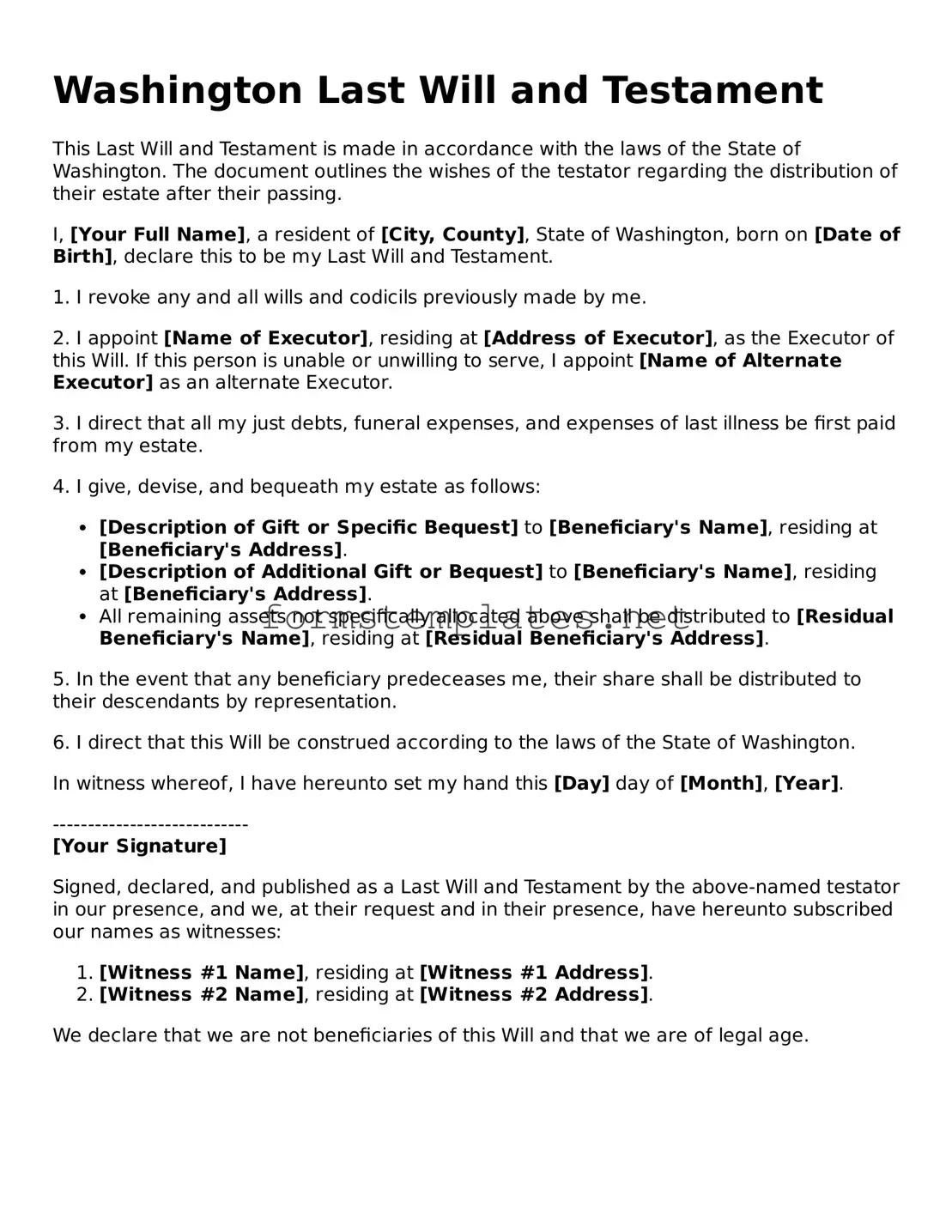Attorney-Approved Washington Last Will and Testament Template
A Washington Last Will and Testament form is a legal document that outlines an individual's wishes regarding the distribution of their assets after death. This form is essential for ensuring that your estate is handled according to your desires, providing clarity and direction for your loved ones. Understanding its components and requirements is crucial for anyone looking to secure their legacy.
Open Editor Now

Attorney-Approved Washington Last Will and Testament Template
Open Editor Now

Open Editor Now
or
⇓ PDF Form
Your form still needs attention
Finalize Last Will and Testament online — simple edits, saving, and download.